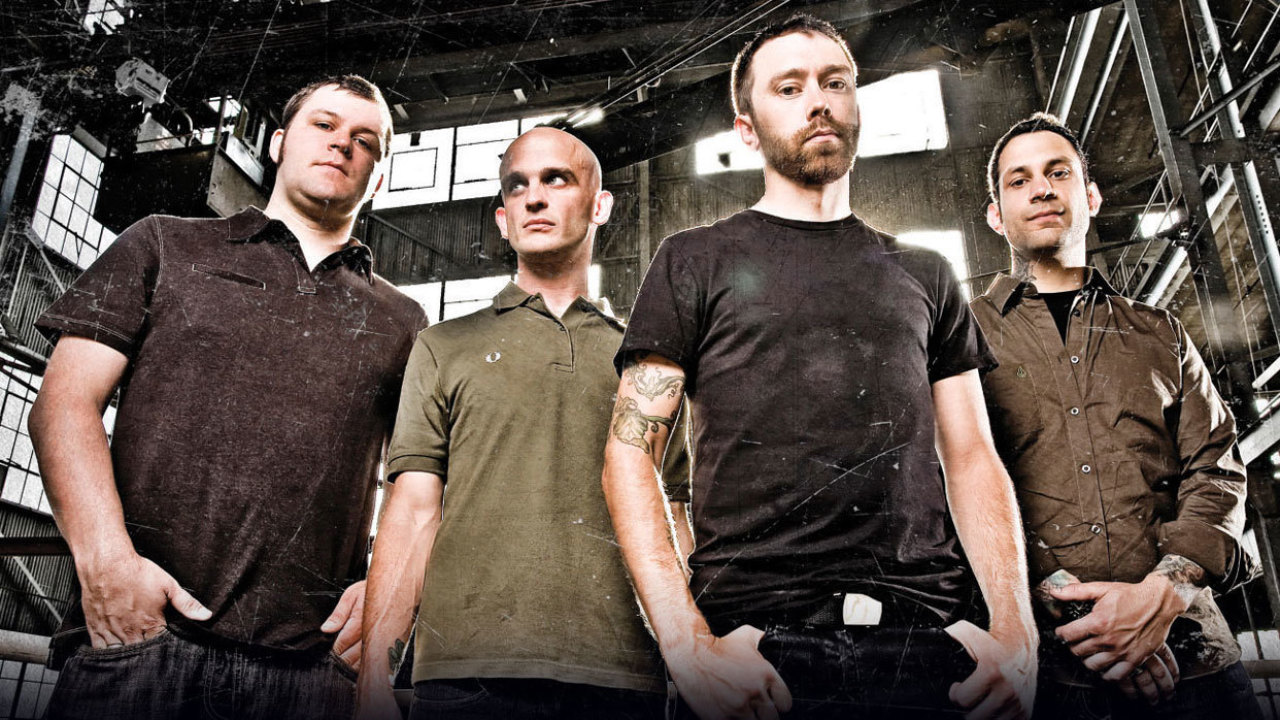I’ve been listening to Rise Against a lot recently. I was, admittedly, a latecomer to them for some reason, but, over the last four years or so, they’ve become a very regular fixture on my stereo.
Just over a week ago, their seventh record, The Black Market, debuted at number 3 on the Billboard 200 chart in America. (It hit number 13 in the UK). It’s their fourth to enter the Top 10 – 2006’s The Sufferer & the Witness made it to 10, 2008’s Appeal To Reason came in at 3 and 2011’s Endgame hit the 2 spot – a run that surely confirms the Chicago band as one of the most important punk acts around today, if not the most important.
It’s probably more than coincidence that the run started the year after Green Day’s American Idiot tour ended, too. For while Billie Joe and co. continue to sell records by the million, they haven’t really made anything of value – either in terms of punk or politics – since that record. And that’s precisely where Rise Against step in. Whereas Green Day were never explicitly a political band until American Idiot, Rise Against always have been. Not wholly, but they’re a band for whom activism is as important a part of what they do as the music itself. And yes, that’s utterly common in the DIY punk/hardcore they started life in, it rarely happens with bands who frequent the top of the Billboard charts (or the UK charts, or any charts). And so it’s precisely there where their opinions can have the most impact, because in a chart saturated by the vapid drivel of manufactured pop music, their songs stand out. Which means, in turn, they have the ability to reach a difference audience and challenge people’s preconceptions about different topics.
Take, for instance, their video for lead single I Don’t Want To Be Here. Its lyrics – as with the vast majority of Rise Against lyrics – are ambiguous and open to the listener’s interpretation, but the video much less so, displaying facts and figures about gun violence from around the world as the song plays out. It’s a far cry from the parody pop of ‘Weird Al’ Yankovic (who was number 1 that week), the sanitised platitudes of Jason Mraz (who was number 2 that week) and Kidz Bop 26, a compilation billed as “Today’s Biggest Hits Sung By Kids For Kids” (number 4). There’s nothing wrong with any of that (not that I think there’s anything particularly good about it, either) but seeing Rise Against, a band who never set out to be commercially successful, up there alongside all that fluff is a jarring and beautiful reminder of the power of music.
That’s the real reason it marks Rise Against out as being one of the most important punk bands around today – because they’re able to reach far outside of their scene, but with the very same values they’ve always had. They aren’t just preaching to the converted – that legion of DIY punks who are ever-ready to smash the system – but to an audience who are rarely exposed to either that kind of message or music. Of course, there will be those who claim that Rise Against aren’t punk anymore, that you can’t be punk if you’re signed to a major label and your songs have catchy choruses and some of them (oh my!) are about love and relationships, but that’s just not true. Being on a major label might be a no-no, but it shouldn’t be. It means you can get your message out, through their distribution channels, to way more people than you’d otherwise be able to.
And that’s about as punk as it gets. Because punk is about ethics and integrity, and keeping those things intact when your commercial success dictates you should throw them away. And maybe the kid who saw Rise Against in the charts above Kidz Bop will check them out of curiosity, and maybe they’ll realise that music doesn’t have to be bubblegum and throwaway, but that it can also mean something, that it can stand for something, that it can inspire hope and be a positive force for change.
